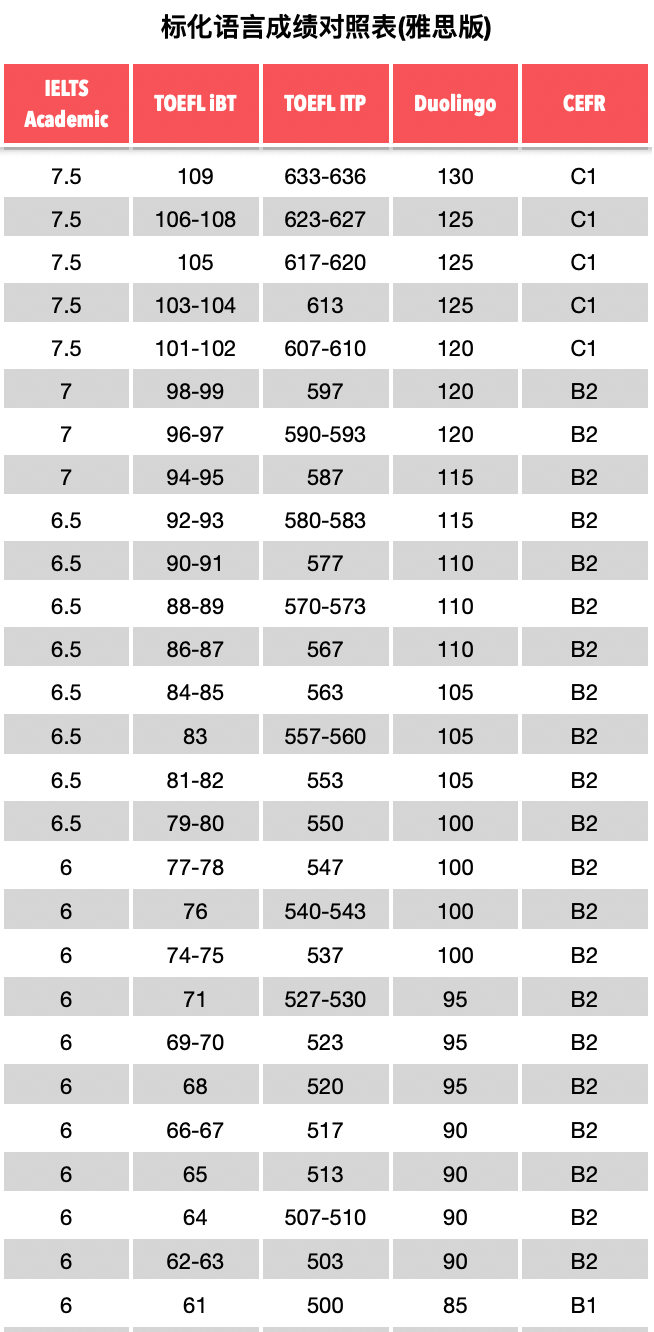托福听力讲座lecture信息量太大记不过来?了解叙述结构安心抓重点。今天小编给大家带来托福听力讲座lecture信息量太大记不过来,希望能够帮助到大家,下面小编就和大家分享,来欣赏一下吧。
托福听力讲座lecture信息量太大记不过来?了解叙述结构安心抓重点
托福听力讲座类叙述结构:定义式结构
这种结构是lecture中最常见的一种结构。文章开头,教授在给出主旨之后,分几个方面去描述某种现象、解释某种原理或者描述某种事物。每个方面就是一段,每一段就是一个大细节。可能每一段中会有一些例子去深入的阐明。需要注意的是,每一段是相互独立的,没有比较、相互影响的关系。如果有比较,就是我们的第二种结构。下面我们来用TPO17-L4来看一下这种结构:
Professor
Ok, now I want to talk about an animal that has a fascinating set of defense mechanisms. And that’s the octopus, one of the unusual creatures that live in the sea.
The octopus is prey to many species, including humans, so how does it escape its predators?
Well, let me back up here a second. Anyone ever heard of Proteous? Proteus was a God in Greek mythology who could change form. He could make himself look like a lion or a stone or a tree, anything you wanted, and he could go through a whole series of changes very quickly.
Well, the octopus is the real world version of Proteus. Just like Proteus, the octopus can go through all kinds of incredible transformations. And it does this in three ways: by changing color, by changing its texture, and by changing its size and shape.
从上段我们可以看出教授在文章开头给出主题(章鱼的能力)以后要开始从三个方面(改变颜色,改变身体的材质,改变形状和大小)来描述,那么每个方面就是一段,每个方面之间是独立的。
托福听力讲座类叙述结构:比较结构
在文章开头,教授会给出2个概念,比如A和B这两个概念。然后就开始对A和B进行一个全文的对比,说完A的某个方面就开始说B在这个方面是怎么样的,这种对比会贯穿全文。在听的过程中,要特别注意对比列举的信号词,记下重要的信息。TPO5-L4就是全文对比的结构,比较的是folktale和fairytale这2个概念,同学们可以参考一下这篇文章来看对比结构。
托福听力讲座类叙述结构:问题解答型结构
在文章开头教授会介绍一下背景并给出一个问题,比如先介绍一下恐龙灭绝的背景知识,然后给出一个问题:恐龙是怎么灭绝的?接下来就针对这个问题开始阐述一些理论或解决方法。每个理论和解决方法就是一个段落
具体的例子同学们可以参考TPO33-L1,这篇文章是讲金字塔的建造的,首先文章开头介绍了一下金字塔,然后给出了一个问题:how the pyramid was built? 然后就开始阐述关于金字塔建造的几种理论。
以上3种结构就是托福听力讲座lecture中最常见的3种叙述结构,大家如果能在平时练习听力时注意把握住素材的叙述结构并举一反三,相信大家都能更为顺利地攻克托福听力拿到高分。
2020托福听力练习:运输货物的丝绸之路传播疾病
For thousands of years, what's called the Silk Road was a group of land and sea trade routes that connected the Far East with South Asia, Africa, the Middle East and southern Europe. Of course, when humans travel they carry their pathogens with them. So scientists and historians have wondered if the Silk Road was a transmission route not just for goods, but for infectious disease.
Now we have the first hard evidence of ancient Silk Road travelers spreading their infections. The find comes from a 2,000-year-old latrine that had first been excavated in 1992. The report is in the Journal of Archaeological Science.
"So the site is a relay station on the Silk Road in northwest China. It's just to the eastern end of the Tarim Basin, which is a large arid area just to the east of the Taklamakan desert, and not far from the Gobi Desert. So this is a dry part of China."
Piers Mitchell, paleopathologist at the University of Cambridge, and one of the study's authors, along with his student Ivy Yeh and colleagues in China.
In the latrine, archaeologists found used hygiene sticks wrapped with cloth. These were used for what you think they were used for.
"This excavation was great because the cloth was still preserved and the feces was still adherent to the cloth on some of the sticks. So the archaeologist kept these sticks in the museum. And so my Ph.D. student, Ivy Yeh, who's first author on the paper, she went out to China took some scrapings from the feces adherent to the cloth. So we were then able to analyze that down the microscope when she brought it back to Cambridge."
Where they found eggs from parasites—including one from a liver fluke.
"And that's the exciting one because that's only found in eastern and southern China and in Korea, where they have marshy areas that have the right snails and the right fish."
The fluke needs snails and fish for its lifecycle, but there were no such snails or fish in this dry region of China. So the unlucky traveler who harbored the parasite had to have transported the disease to that spot.
"Well firstly it tells us that people were doing very long journeys along the Silk Road and you might think that's obvious. But no one really knew how long people were traveling. Some people may have been trading, only going short distances selling their goods on to the next person. And so the goods might have gone all the way along the Silk Road, but people might not. But we know that some people were doing huge distances..."
"Secondly it shows that this was, would be a viable route for the spread of those other infectious diseases like Bubonic plague and leprosy and anthrax that people had previously suggested might have been spread between East Asia and Europe along the Silk Road. Because modern genetic analyses have shown similarities between the strains of one end and the other."
Mitchell says there's much more work to be done to better understand the spread of diseases around the world. Perhaps from analyzing skeletons—or various other kinds of remains—to be found along the Silk Road.
Thanks for the minute for Scientific American — 60-Second Science Science. I'm Cynthia Graber.
数千年来,海洋与陆地之间的贸易路线丝绸之路将远东、南亚、非洲、中东和南欧连接起来。当然,人类在旅行时也携带着病原体。科学家和历史学家怀疑,丝绸之路运输的不仅仅是货物,还有传染性疾病。
现在,我们掌握了第一个有力的证据,证明古代丝绸之路的游客传播了自身的疾病。这项结果源自1992年发掘的一个有2000年历史的茅厕。该项研究结果发表在《考古科学:报告》杂志上。
“这里是中国西北部丝绸之路上的一个中转站。位于塔里木盆地的东端,塔里木盆地这块广阔干旱的地区位于塔克拉玛干沙漠的东部,距离戈壁沙漠不远。这里是中国的一个干旱地带。”
皮尔斯·米切尔是剑桥大学的古生物病理学家,同时也是该报告的作者之一,他和他的学生艾薇·叶以及来自中国的同事们一同进行了该项研究。
考古学家在发掘的茅厕里发现了用过的卫生棍,这些卫生棍用布裹着。这些东西的用途和你认为的一样。
“这次发掘意义很大,因为这些布仍然保存完整,而且排泄物还附着在一些棍子裹着的布上。考古学家把这些卫生棍保存在博物馆。我的博士学生艾薇·叶,同时也是该论文的第一作者,去中国刮取了布上的一些排泄物。这样,我们就能够在显微镜下分析她带回剑桥的样本。”
他们发现了寄生虫的卵,还有肝吸虫的卵。
“这项发现让我们兴奋不已,因为这些只存在于中国东部和南部以及韩国,那里的沼泽地有含有这些病原体的蜗牛和鱼类。”
肝吸虫需要依靠蜗牛和鱼类进行生命循环,但是中国干旱地区没有这些病原体所需要的蜗牛和鱼类。所以,携带着寄生虫的倒霉游客将疾病带到了该地区。
“首先,这告诉我们,人们沿着丝绸之路长途跋涉,你可能认为这是显而易见的。但是没有人确切知道人们到底走了多远。有些人可能一直在进行贸易活动,他们只走了很短的距离,将自己的货物转卖给他人。所以,货物可能要一直沿着丝绸之路运输,但是人就不一定了。不过我们知道有些人的确走了很远的距离。”
“其次,这项发现表明,这可能也是黑死病、麻风病和炭疽等传染疾病的传播路线,此前人们认为这些疾病沿着丝绸之路在东亚和欧洲之间传播。因为,现代基因分析表明,菌株一端和另一端存在相似性。”
米切尔表示,为了更好的了解疾病在世界范围内的传播,还有更多的工作要做。也许可以分析在丝绸之路上发现的骨骼或是其他类型的遗留物。
重点讲解:
1. come from 来自;始于;
例句:The news comes from a reliable source.
这消息来自可靠的来源。
2. along with 与…一起;
例句:She came to dinner along with her boyfriend.
她和她的男朋友一道来用餐。
3. be adherent to 黏附;附着;
例句:The brass plate must be adherent to the steel.
黄铜片必须和钢粘结。
sell on 转卖;倒卖;
例句:Mr Farrier bought cars at auctions and sold them on.
法里尔先生拍得汽车后再将其转手
2020托福听力练习:气味大师环尾狐猴
Ring-tailed lemurs are a chatty lot.
They vocalize to exchange information.
And they also communicate via a veritable smorgasbord of stinky secretions they use to mark their territory and advertise their romantic availability.
But male lemurs, which have more scent glands than do females, are really masters of musk—because they sometimes mix their smelly secretions to produce a veritable bouquet of stank.
And now researchers have a better idea why.
Male lemurs sometimes use the scent glands on their wrists to mark tree branches and saplings.
Other times, they double down, rubbing their wrists against glands on their chests to create a foul and funky fusion.
This special blend can then be smeared over objects or wiped onto their tails, which the males wave at their rivals in a display that scientists refer to as a “stink fight.”
But why create such a custom combination?
Perhaps adding the oily exudate from the chest alters the information conveyed by the wrist.
Or maybe it acts as a kind of preservative that makes the wrist signal longer lasting.
To find out, researchers gathered secretions from a dozen ring-tailed lemurs at the Duke Lemur Center in North Carolina.
They then presented male lemurs with wooden dowels that were doused with either the wrist fragrance, the chest scent, or a mixture of the two.
And they found that males spent more time sniffing the stick with the mixture, which suggests that the fragrant combination does contain more interesting information than the solo scents alone.
But the lemurs were even more interested in the odiferous amalgamation when it was left out to evaporate for 12 hours, licking the sticks to better access the dried volatile compounds.
That observation supports the theory that mixing secretions actually boosts their staying power.
The results are in the journal Royal Society Open Science.
So while a rose is a rose is a rose, the perfume of the ring-tailed lemur is a complex concoction, the subtle meaning of which lies in the nose of the beholder.
环尾狐猴真的很健谈。
它们发声的目的是交流信息。
而且它们也会通过名副其实散发恶臭分泌物的混合物进行交流,而它们一般将这些分泌物用作标记领地及向异性求爱。
但气味腺比雌性狐猴多的雄性狐猴才是真正的气味大师—它们有时候会将那些臭味分泌物混合然后弄出一些散发恶臭的混合气。
环尾狐猴或是气味大师.jpg
而现在研究人员们已经对环尾狐猴这样做的原因有了进一步的了解。
雄狐猴有时候会用手腕的腺体气味分泌物在树枝及嫩枝上做标记。
其余时间它们就一直躺着,摩擦自己手腕上的腺体分泌物到胸部并制造出一种散发强烈臭味的混合物。
这种特殊混合物随后就被涂在一些物体或者附着在它们的尾巴上,而雄性狐猴向它们的情敌宣战摆动尾巴时就会起到交流作用,而科学家们将此称为“臭气的较量”。
但为什么要特别弄出这种臭味的混合物呢?
研究人员分析了环尾狐猴的气味变化.jpg
或许加入从胸部分泌出的油状物可以改变手腕部臭气所代表的信息。
又或者它起到的是一种防腐剂的作用,让手腕的信号更持久。
为了一探究竟,研究人员们从北卡莱罗纳州的杜克狐猴中心收集到了12只环尾狐猴的分泌物。
然后他们分别将附着腕部气味,胸部气味及两者混合气味的木钉放到雄性狐猴面前。
结果研究人员发现雄性狐猴会在混合气体前驻足,这表明相比单独气味,混合气体确实含有更多更有趣的信息。
但在随后静置12小时待气体蒸发后,狐猴对混合气味更感兴趣,它们会舔这些木棍以便更好的接触到这种干燥挥发性的混合气体化合物。
这项观察实验证明了混合分泌物确实会促进狐猴驻足停留的理论。
这项研究已在《皇家社会公开科学》杂志上发表。
因此虽然一支玫瑰就是一支玫瑰而且只会散发出玫瑰的气味时,但环尾狐猴的香水可是极为复杂的混合物,而其中所蕴含的微妙含义只能交由当事者的鼻子品评。
1.wipe onto 擦上
例句:Wipe the lotion onto your face.
你在脸上搽些护肤液。
2.wave at 朝…挥手(致意)
例句:So why you just wave at her?
为什么你只是对她招招手?
3.find out 发现;使发作
例句:I need to find out who tried to frame me.
我得找出是谁企图诬陷我。
4.stick with 坚持
例句:If you're in a job that keeps you busy, stick with it.
如果你所做的工作能让你很忙,那要坚持下去。
托福听力讲座lecture信息量太大记不过来相关文章:
★ 托福考试接近满分经验分享
托福听力讲座lecture信息量太大记不过来
上一篇:托福听力轻松提分备考要诀逐一指点
下一篇:托福听力备考如何更快提升






